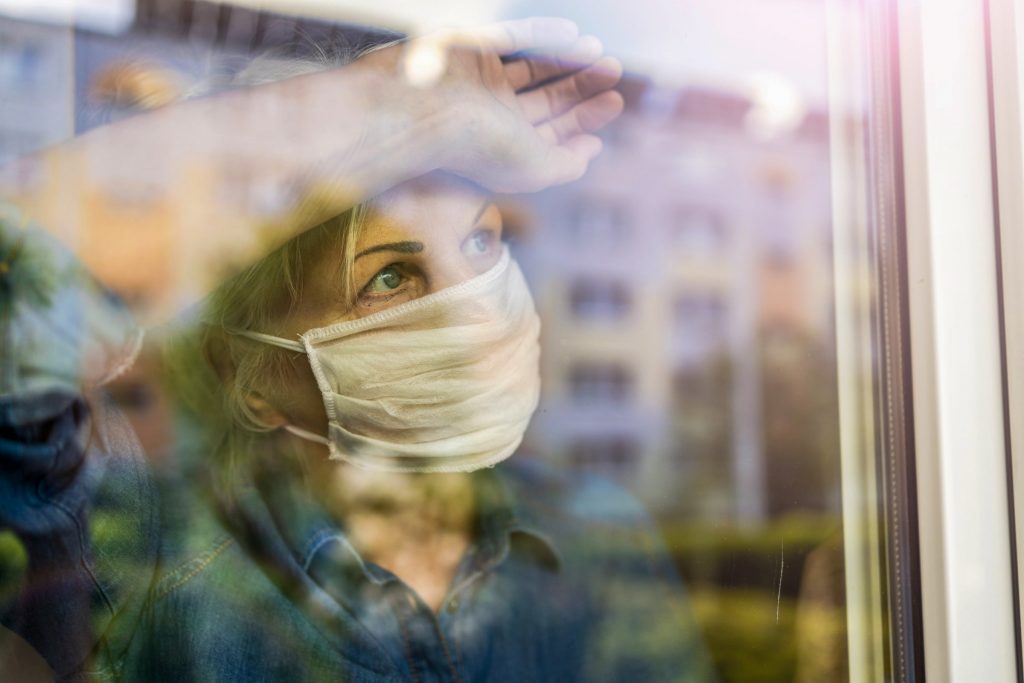Besides being life-threatening, the deadly virus, known as coronavirus or Covid-19, is also having a huge impact on mental health. For example, just being trapped inside for weeks or even months can lead to feelings of sadness, anxiety, loneliness, depression and other emotions. Here’s how Covid-19 is affecting the mental health of Americans, along with how Accelerated Resolution Therapy can help your clients.
Grief
Sadness is a common feeling felt by most people during this difficult time. Just consider how it feels when you learn that someone close to you or knew has died of Covid-19. Maybe you don’t know of anyone personally who’s lost their life, but just checking the daily stats on the number of people who’ve contracted the virus, besides those who have died, can cause feelings of grief. You can also feel sad by seeing the dreary television images of patients struggling for their lives in hospitals.
Fear of Being Infected
There are several ways how coronavirus is causing fear and anxiety. For many older people, and especially those with underlying health issues, the virus is creating fear because they are worried that they’re not doing enough to protect themselves.
Medical professionals are telling us you need to do more than wear a mask, wash your hands and practice social distancing. We’re told that after going to the grocery store, we need to change our clothes, take off our shoes and disinfect our phones. If this isn’t enough to cause anxiety, we’re warned not to bring in our mail for several hours to ensure there are no virus particles on the paper.
Stress from Too Many People at Home
On the other hand, many families with children at home are having to homeschool their kids while trying to telework from home at the same time. As a result, this containment can cause family members to become irritable, restless and stressed. People living in smaller quarters with family members who already struggle with mental issues can face even bigger challenges in trying to cope.
Financial Stress
Besides worrying about protecting their health, people are just as stressed about their financial conditions since many workers have lost their jobs. Furthermore, a lot of retirees have lost most of their life savings. If you do have an essential job, there’s the worry that you could not only get infected with the virus but also bring it home to your household.
Stress from Having to Restructure a Business
Another stressor involves business professionals, such as cosmetologists, gym owners, restaurant workers and others who are now open for business, such as in Georgia. For instance, besides having to wear masks, they have to abide by all the guidelines for operating their businesses. For those working in the hospitality industry, this can mean spacing out your tables to ensure safe social distancing. Moreover, there’s the anxiety of not having enough customers show up so that a business can stay afloat.
Loneliness and Isolation
Before the pandemic even hit America, our country has been suffering from loneliness and social isolation. According to recent study, about 46 percent of American adults feel occasionally or constantly lonely with many of these people being young adults. Add to this the problem of having to be quarantined at home. Americans are feeling isolated and stir-crazy, not being able to visit with their families and friends. This is even worse for those living alone.
Guilt
For others, there are feeling of guilt because they’re unable to see or help their elderly parents. Tragically, this terrible virus has mainly been fatal to those in nursing homes. There’s also the guilt of not being able to be with a loved one in the hospital who is critically ill or close to death either from the virus or another condition.
Covid-19 and PTSD
When most people think of Post-Traumatic Stress Disorder (PTSD), they link it with traumatic events, such as wars, terrorist attacks and serious accidents. Unfortunately, many people, worldwide, are undergoing the symptoms of PTSD because of Covid-19.
Following the 2003 SARS outbreak, healthcare workers, as well as self-quarantined individuals, showed the common symptoms of PTSD. These include insomnia, recurring nightmares of a traumatic event, anger, irritability, feeling cut off emotionally from others, loss of interest and other symptoms.
How Accelerated Resolution Therapy Can Help Treat Mental Issues
Maybe you’ve heard of Accelerated Resolution Therapy (ART) but aren’t quite sure what it is. Put simply, this is a highly effective psychotherapy that’s used for treating people who suffer from trauma, besides other types of mental issues, including depression, anxiety, panic attacks, phobias, OCD (Obsessive Compulsive Disorder), PTSD, substance abuse and addictions.
This therapy works by reprogramming how distressing images and memories are stored in a person’s brain, so they stop triggering strong reactions. It does this by using rapid eye movements, much like those occurring while dreaming. By using an extremely directive, specific approach, ART is able to help clients recover from troublesome symptoms that have affected them for several years.
To learn more about how Accelerated Resolution Therapy can help your clients, contact us.

